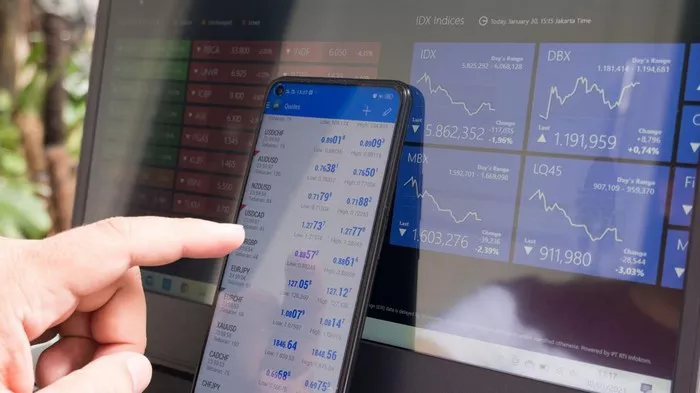Futures trading is a financial activity that involves the buying and selling of contracts to purchase or sell an underlying asset at a predetermined future date and price. It is a common practice in the global financial markets, where traders and investors use futures contracts to speculate on price movements, hedge against risks, and manage their portfolios. However, the permissibility of futures trading in Islamic finance has been a subject of debate for many years.
Understanding Islamic Finance
Islamic finance is a system of financial and economic principles that adhere to the teachings of Shariah, the Islamic legal framework. Shariah-compliant financial transactions are guided by ethical and religious principles, with a focus on fairness, risk-sharing, and avoiding activities that are considered sinful or unethical in Islam. Key concepts in Islamic finance include profit-and-loss sharing, avoidance of excessive uncertainty (gharar) and gambling (maysir), and the prohibition of interest (riba).
Futures Trading: An Overview
Futures trading involves the purchase or sale of standardized contracts that obligate the parties involved to buy or sell an underlying asset, such as commodities, currencies, or financial instruments, at a specified future date and price. These contracts are traded on organized exchanges and are used for various purposes, including speculation, hedging, and investment.
The permissibility of futures trading in Islamic finance hinges on several factors and interpretations of Shariah law:
Gharar (Excessive Uncertainty): One of the fundamental principles in Islamic finance is the avoidance of excessive uncertainty or gharar. Some scholars argue that futures trading involves a level of uncertainty regarding the future price of the underlying asset, which may violate this principle. However, the extent of gharar in futures trading can vary depending on the specific contract terms and market conditions.
Selling What One Does Not Possess (Short Selling): Short selling, a common practice in futures markets, involves selling a futures contract for an asset one does not currently own with the expectation of buying it back at a lower price. Islamic finance scholars have differing opinions on the permissibility of short selling, as it may resemble a form of gambling (maysir) or create excessive speculation.
Payment of Riba (Interest): Another concern in futures trading is the potential for contracts to involve the payment of interest, which is strictly prohibited in Islamic finance. Some contracts may carry interest-like charges, such as financing costs or carrying charges, which can raise ethical and religious concerns.
Islamic Interpretations on Futures Trading
The permissibility of futures trading in Islamic finance varies based on interpretations from different Islamic scholars and institutions. It’s essential to note that there is no one-size-fits-all answer, and opinions on this matter can differ significantly.
Permissibility with Conditions: Some scholars argue that futures trading can be permissible in Islamic finance as long as specific conditions are met. These conditions may include ensuring that the underlying asset is halal (permissible) and that contracts do not involve excessive uncertainty or interest-like payments. Scholars advocating for this view believe that futures trading can serve as a risk management tool and provide economic benefits if conducted ethically.
Prohibition: On the other hand, some Islamic scholars take a stricter stance and categorically prohibit futures trading due to concerns over gharar, speculation, and short selling. They argue that the inherent features of futures contracts can lead to unethical behavior and, therefore, should be avoided in Islamic finance.
Case-by-Case Analysis: Many Islamic financial institutions and scholars take a case-by-case approach to evaluate the permissibility of specific futures contracts. They consider factors such as contract terms, market conditions, and the nature of the underlying asset when determining whether a particular futures contract complies with Shariah principles.
Ethical Considerations in Futures Trading
Beyond the specific interpretations of Islamic finance, ethical considerations also play a significant role in evaluating the permissibility of futures trading. These considerations include:
Speculation: Futures markets are often associated with speculation, where traders aim to profit from price movements without any intention of taking physical possession of the underlying asset. Critics argue that excessive speculation can lead to market volatility and instability, which may be considered unethical.
Short Selling: Short selling, a common practice in futures trading, involves selling assets one does not possess, with the hope of buying them back at a lower price. This practice has been criticized for its potential to drive down asset prices and disrupt financial markets.
Ethical Use of Profits: Even if futures trading is considered permissible, Islamic finance principles emphasize the ethical use of profits. Traders and investors are encouraged to engage in ethical and socially responsible activities and avoid industries or practices that are deemed harmful or unethical.
Conclusion
The permissibility of futures trading in Islamic finance is a nuanced and debated topic. While some scholars argue that futures trading can be acceptable with certain conditions, others take a stricter stance and categorically prohibit it due to concerns over excessive uncertainty and speculation.
Ultimately, the evaluation of whether futures trading is halal (permissible) or haram (prohibited) in Islamic finance may depend on individual interpretations, contract specifics, and ethical considerations. As with any financial activity, individuals and institutions engaged in futures trading should seek guidance from qualified Islamic scholars and adhere to the principles of Shariah law to ensure their actions align with ethical and religious standards.


